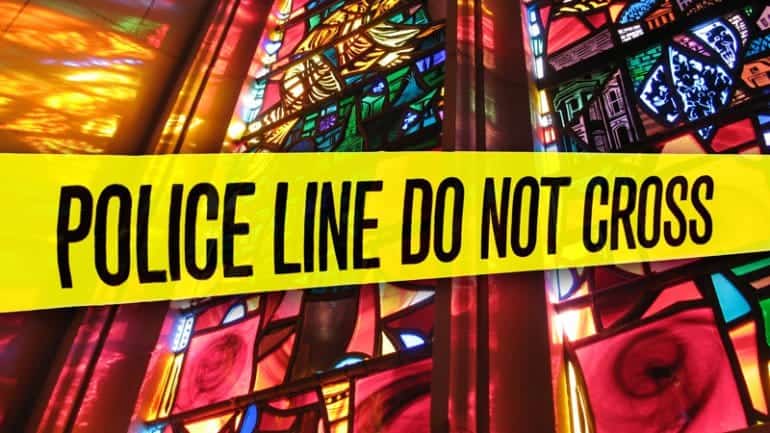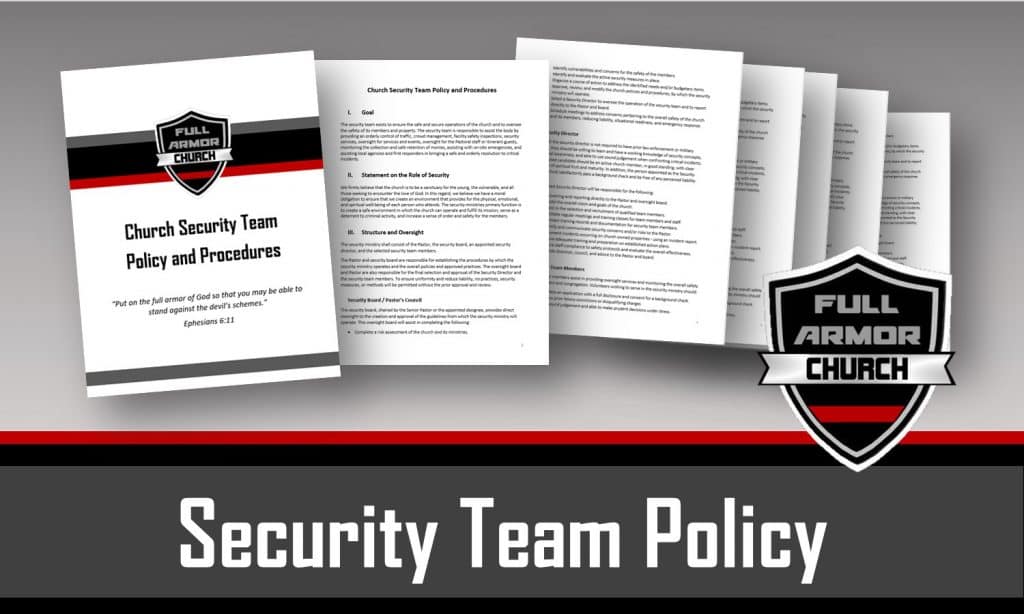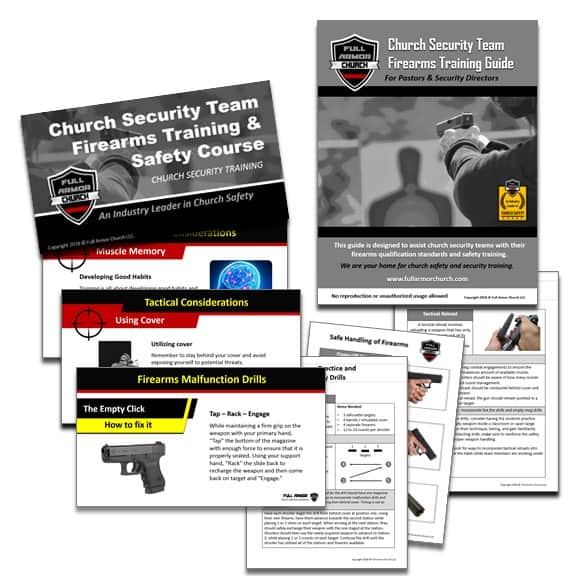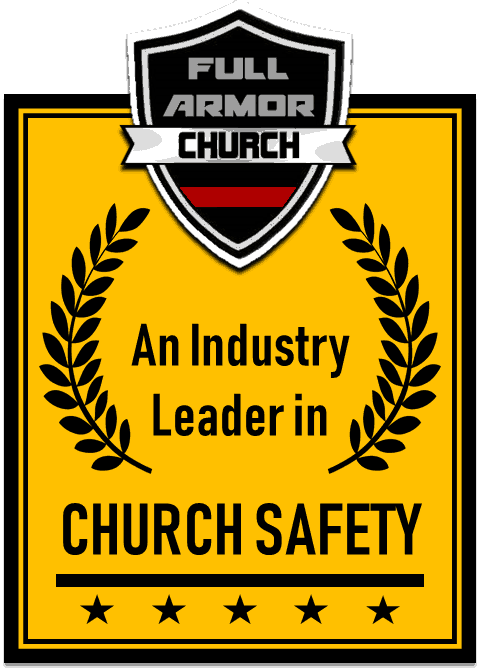Operating a Church Security Ministry
 Is church security an option or a mandate?
Is church security an option or a mandate?
“Keep watch over yourselves and all the flock of which the Holy Spirit has made you overseers. Be shepherds of the church of God, which he bought with his own blood.” Acts 20:28
Many pastors are fully aware of the various threats and hazards facing our churches and have taken proactive steps to help guard their flocks against harm. However, many question if they have done enough to properly prepare their congregations and volunteers to respond in a time of crisis. It is for this reason that every ministry, regardless of its size, should have designated members who are willing to be trained, prepared, and ready to assist and watch over the local body. This is not only our rightful obligation, as shepherds, but a necessary role within our ministries.
Whether you are in the initial development stages of your church security ministry or have a well-oiled ministry up and running, you should consider the following points to assist in your operation:
Step 1 – Formation and Oversight
Security ministries can become a great liability, if done haphazardly, and should have proper oversight and direction from the leadership. To keep things balanced, you should operate under the following structure:
 An Oversight Board/Pastor’s Council – Because most ministries already have an established board that oversees the affairs of the church, utilizing them to assist in the formation and oversight of the security ministry just makes sense. This board, along with the pastor and an appointed security director, should work to develop the policies and procedures by which the security ministry will operate. At a minimum, this board should meet annually to conduct a risk assessment and evaluation of the safety measures in place.
An Oversight Board/Pastor’s Council – Because most ministries already have an established board that oversees the affairs of the church, utilizing them to assist in the formation and oversight of the security ministry just makes sense. This board, along with the pastor and an appointed security director, should work to develop the policies and procedures by which the security ministry will operate. At a minimum, this board should meet annually to conduct a risk assessment and evaluation of the safety measures in place.
A Security Director – This position should be selected by the Pastor and the governing board. The director should be a member of the body with clear evidence of spiritual maturity and discernment. Although law enforcement or military training is preferred, it is not a required prerequisite. The director should oversee the overall operations of the security ministry and be able to train, monitor, and faithfully oversee the security team members.
Church Security Team Members – Teams should consist of active church members who are spiritually sound, qualified to serve, and physically able and willing to respond and assist the local body in the event of a crisis or critical incident. Once again, members who have law enforcement or formal training should be sought. However, it should never be the sole criteria for serving.
For more tips, review our 10 Essential Steps for Church Safety.
Step 2 – Selection of Team Members
Once you have established the internal policies and procedures for the church security ministry, you should begin to identify and solicit those members from within the body who model Godly characteristics and those who have demonstrated self-control and spiritual maturity.
The Pastor and the oversight board should pre-establish the criteria and/or disqualifying terms for those applicants wishing to serve in this role. You should have prospective candidates complete an security team application and undergo a criminal background check. Take into consideration any prior criminal histories, nature of any previous offenses, and the time frame in which they have occurred. You should guard your ministry against allowing persons to serve who have previous offenses involving sexual misconduct or offenses against minors.
Those persons who are presently being treated for a clinical diagnosis of mental health disorders or those presently prescribed psychotropic medications for mental health conditions should not be considered. The greatest concern is the overall well-being of the person in question and the liability issues arising while acting on behalf of the ministry.
There are many ways in which people can serve within the local body. However, the security ministry should remain tightly monitored and the selection process thorough. The goal is to ensure the very instrument used to guard the body is not facilitated to cause it harm.
Full Armor Church not only provides ministries with the forms, policy manuals, and resources needed to operate their church security ministry, we also offer volunteer background checks for $12. Visit our website for more information.
Step 3 – Operations and Training
 Once you have assembled your church security team, you should hold an orientation and cover the overall vision, purpose, and established protocols for the ministry.
Once you have assembled your church security team, you should hold an orientation and cover the overall vision, purpose, and established protocols for the ministry.
Every church security ministry should hold regularly scheduled meetings to develop proficiency with the established procedures and action plans. They should become fluent on evacuation protocols, lock-downs, responses to medical emergencies, and disruptive members. They should also familiarize themselves with pre-service checks, service time protocols, and their specific roles and assignments.
Security team members should rotate and be required to participate in services and worship. Spiritual emphasis and preparation is the key to effectively discerning and responding to the enemy’s tactics.
If you need training materials and resources, you may want to check out our Complete Church Security Kit. We also offer material for ministries operating armed church security ministries. If you need more information, you can review our How To Operate an Armed Church Security Ministry.
Documentation and Forms
When overseeing a church security team, documentation is your friend. After any major incident local law enforcement, government agencies, and even civil attorney’s may request copies of your emergency response plans, written procedures, and training documentation for team members. As a good practice, every church operating a security team should be able to produce and have readily available the following items:
Security team policies
Emergency response plans and policies
Roles and responsibilities
Applications and background checks for team members
Copies of concealed carry permits or government ID for armed members
Training records and classroom rosters
Weapons approval forms and firearms qualifications
Training resources and emergency response guides
We understand that the development of the organizational documents can become very time consuming and have ready made forms and resources available to assist.
Equipment and Supplies
Operating a church security ministry can be done with very little out of pocket cost. In fact, most ministries already own the majority of items needed to operate a security ministry team. Some basic examples are 2-way radios, identification, flashlights, traffic safety vest, traffic control devices, training materials, and surveillance cameras, etc.




Leave a Reply
Your email is safe with us.
You must be logged in to post a comment.